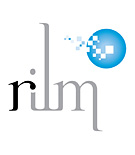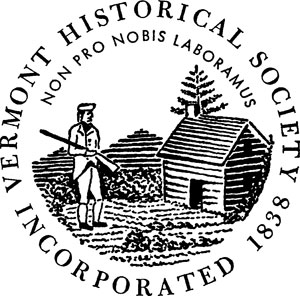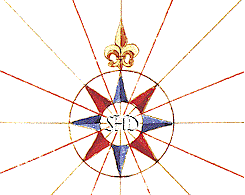
Early music generally comprises Medieval music (500–1400) and Renaissance music (1400–1600), but can also include Baroque music (1600–1750). Early music is a broad musical era for the beginning of Western classical music.
The Society for Classical Studies (SCS), formerly known as the American Philological Association (APA), founded in 1869, is a non-profit North American scholarly organization devoted to all aspects of Greek and Roman civilization. It is the preeminent association in the field, and publishes a journal, Transactions of the American Philological Association (TAPA). The APA is currently based at the University of Pennsylvania, in Philadelphia.
The Society for Electro-Acoustic Music in the United States (SEAMUS) is a nonprofit US based organization founded in 1984 which aims to promote electro-acoustic music. In particular, the organization aims:
The American Musicological Society is a musicological organization founded in 1934 to advance scholarly research in the various fields of music as a branch of learning and scholarship. It grew out of a small contingent of the Music Teachers National Association and, more directly, the New York Musicological Society (1930–1934). Its founders were George S. Dickinson, Carl Engel, Gustave Reese, Helen Heffron Roberts, Joseph Schillinger, Charles Seeger, Harold Spivacke, Oliver Strunk, and Joseph Yasser. Its first president was Otto Kinkeldey, the first American to receive an appointment as professor of musicology.
The American Society of Overseas Research (ASOR), founded in 1900 as the American School of Oriental Study and Research in Palestine, is an international organization whose mission is to initiate, encourage, and support research into, and public understanding of, the history and cultures of the Near East and wider Mediterranean, from the earliest times to the present, by:

The Distin family was an ensemble of British musicians in the 19th century who performed on brass instruments, and from 1845 promoted the saxhorn. One of them, Henry Distin, later became a noted brass instrument manufacturer in the United Kingdom and United States.

Répertoire International de Littérature Musicale, commonly known by its acronym RILM, is a nonprofit organization that offers digital collections and advanced tools for locating research on all topics related to music. Its mission is "to make this knowledge accessible to research and performance communities worldwide….to include the music scholarship of all countries, in all languages, and across all disciplinary and cultural boundaries, thereby fostering research in the arts, humanities, sciences, and social sciences." Central to RILM's work and mission is the international bibliography of scholarship relating to all facets of music research.
The Labor and Working-Class History Association (LAWCHA) is a non-profit association of academics, educators, students, and labor movement and other activists that promotes research into and publication of materials on the history of the labor movement in North and South America. Its current president is James Gregory, professor of history at University of Washington.
The American Musical Instrument Society (AMIS) was formed in 1971 "to promote study of the history, design, and use of musical instruments in all cultures and from all periods". Based in the United States, it publishes a journal and a newsletter, holds annual conferences, maintains an active website and e-mail forum, and presents five awards. The society's international membership includes collectors, curators, historians, performers, instrument makers, conservators, restorers, dealers, teachers, and students.
The Society for Ethnomusicology is, with the International Council for Traditional Music and the British Forum for Ethnomusicology, one of three major international associations for ethnomusicology. Its mission is "to promote the research, study, and performance of music in all historical periods and cultural contexts."

The Association for Slavic, East European, and Eurasian Studies (ASEEES) is a scholarly society dedicated to the advancement of knowledge about the former Soviet Union and Eastern and Central Europe. The ASEEES supports teaching, research, and publication relating to the peoples and territories within this area.

The Vernacular Architecture Forum (VAF) is a scholarly organization founded in 1980 to support the study and preservation of all aspects of vernacular architecture and landscapes. The organization has brought together scholars and practitioners from a wide variety of disciplines--geography, folklore, architecture, landscape architecture, historic preservation and others. The Vernacular Architecture Forum holds an annual meeting, conducts tours, and publishes the quarterly Vernacular Architecture Newsletter and the annual journal Buildings & Landscapes: Journal of the Vernacular Architecture Forum. In 2007, VAF had more than 800 members.

The Vermont Historical Society (VHS) was founded in 1838 to preserve and record the cultural history of the US state of Vermont. Headquartered in the old Spaulding School Building in Barre, the Vermont History Center is home to the Vermont Historical Society's administrative offices, the Leahy Library and a small book shop. In Montpelier the Society operates the Vermont History Museum in the Pavilion building, just east of the Vermont State House.
Alexander Rehding is Fanny Peabody Professor of Music at Harvard University. Rehding is a music theorist and musicologist with a focus on intellectual history and media theory, known for innovative interdisciplinary work. His publications explore music in a wide range of contexts from Ancient Greek music to the Eurovision Song Contest—and even in outer space. His research has contributed to Riemannian theory, the history of music theory, sound studies, and media archaeology, reaching into the digital humanities and ecomusicology.

Society for the History of Discoveries, founded in 1960, is an international, United States-based, organization formed to stimulate interest in teaching, research, and publishing the history of geographical exploration. Its members include those from several academic disciplines as well as archivists, non-affiliated scholars, and laypersons with an interest in history. SHD advances its goals by organizing annual meetings at which pertinent scholarly research papers are presented, by publishing a scholarly journal with articles on geographic exploration, and by annually offering an award to student research papers in the field. The Society is a US non-profit 501(c)(3) organization administered by a voluntary and unpaid team of council members and officers. Membership is open to all who have an interest in the history of geographical exploration. It publishes a semiannual journal, Terrae Incognitae.

The Society for Scholarly Publishing (SSP) is a professional society, founded in 1978, dedicated to promoting and advancing communication and networking among all sectors of the scholarly communications community. It has approximately 1,100 members from 24 countries including publishers, service providers, librarians, researchers, and consultants.
The National Early Music Association (NEMA) of the UK was founded in 1981. Its declared aims are "to bring together all concerned with early music and to forge links with other early music organisations in the UK and around the world". Francis Knights is Chairman and the management is in the hands of an elected Council. Several eminent musicians have chaired the Association in the past, including Christopher Page, Peter Holman and the late Clifford Bartlett.
The Australian Association for Jewish Studies (AAJS) is a scholarly organization in Australia that promotes academic Jewish Studies. AAJS was founded in 1987 and held its first annual conference that year in Melbourne. AAJS is Australia's national association for tertiary academics, Jewish educators, researchers, curators, students and others devoted to the study of any aspect of Jewish life, thought and culture.
The Jungian Society for Scholarly Studies is a North American interdisciplinary organization of scholars interested in developing, extending and applying the theories of Carl Gustav Jung to natural sciences, social sciences, humanities, and the arts.
Nicholas Mark Temperley was an American musicologist of English background. He is known for his pioneering work in British music studies.